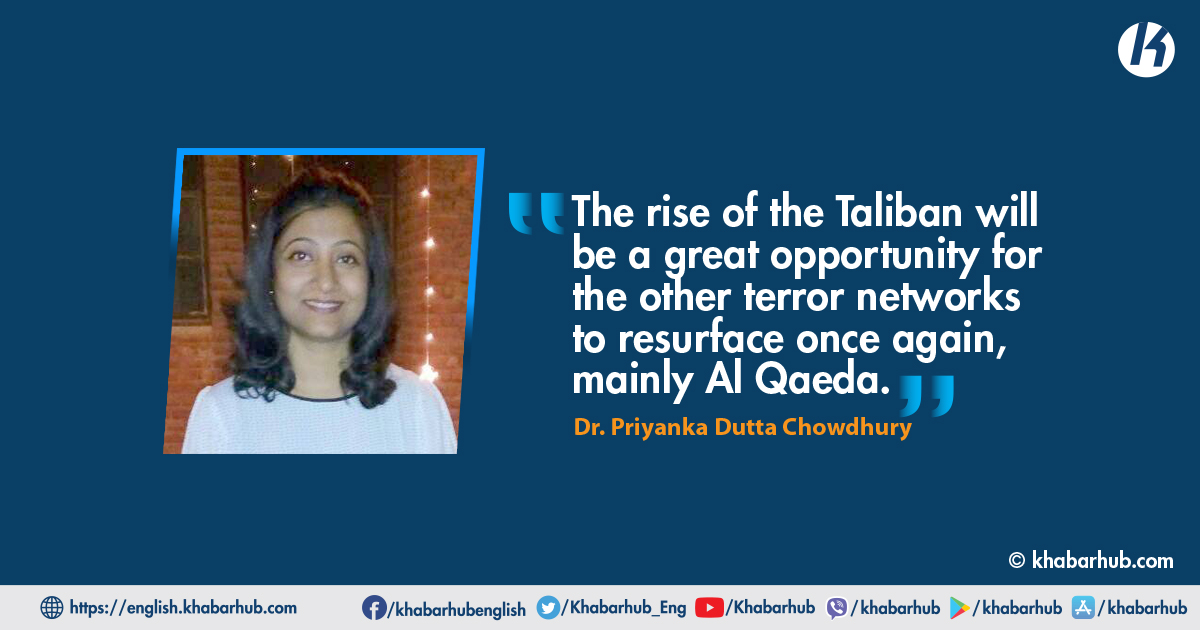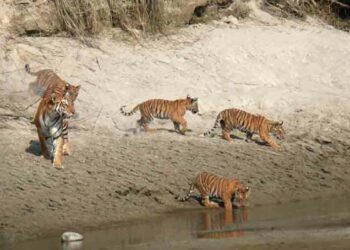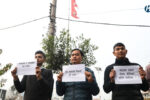India has become an important global player in the sphere of international politics. The country has made its mark transgressing various challenges.
On the geopolitical front, India has often faced and dealt with various defiant situations but the challenge which is resurfacing repeatedly is the concern of terrorism.
In such a situation, faced with various challenges from a hostile neighbor like Pakistan and China, the slipping of power into the hands of fundamentalist forces like the Taliban in Afghanistan is an alarming development for India.
On the 17th of September, 2021, in the Shanghai Cooperation Organization’s 21st summit held in Dushanbe, Tajikistan, the prime minister of India placed his concern and suggestions regarding the situation in Afghanistan.
The SCO, being one of the leading organizations in dealing with the concern of terrorism and other security issues, is committed to ensuring peace and stability in the region based on mutual trust and cooperation promoting neighborliness in the region.
Addressing the summit virtually, the Prime Minister in his speech highlighted various issues. He mainly focused on the concern of “radicalization” in the region. He said that the recent issue of Afghanistan has reinforced the problem once again.
Moreover, the exit of Western forces and the advanced weapons left by them can make Afghanistan an epicenter of illicit weapon trade and might eventually increasing the illegal drug trade and human trafficking.
He pointed out that the issue of giving legitimacy to a non-inclusive government in Afghanistan, which was formed without negotiations and by excluding important groups in the country, should be considered rationally.
He added that the security of women and minorities should be taken into consideration. Further, he highlighted that an unstable Afghanistan can be a breeding ground for cross-border terrorism.
The Prime Minister further added that with the rise of fundamentalist forces in Afghanistan, terrorist and extremist ideologies across the globe may get encouragement.
Moreover, the exit of Western forces and the advanced weapons left by them can make Afghanistan an epicenter of illicit weapon trade and might eventually increasing the illegal drug trade and human trafficking.
Therefore, showing his concern regarding the issue of global terrorism and the Indian subcontinent being a major victim of the fundamentalist activities, the Prime Minister urged the SCO members to form a template and a code of conduct to counter-terrorism, especially cross-border terrorism, as the rise of fundamentalism in Afghanistan may have a spill-over effect in the Eurasian continent and the world at a large.
China’s recognition of the government in Afghanistan will enhance its role in South Asia and help it counter India through possible projects like the road port initiative in the Taliban-led country.
Moderate tolerant inclusive Islamic groups, which are prevalent in Central Asia, should come together and work to counter radicalization and religious extremism with the help of their rational thinking, added the Indian PM. Further praising the Anti-Terrorist Structure (RATS) of SCO, he asked the group to guide and provide cooperation in eliminating terror threats and outfits which are a constant source of security challenges to India (Political Challenge in Afghanistan not Inclusive: Modi, The Hindu, 17 September 2021)
India was for a long time monitoring the ground situation in the war-ravaged country of Afghanistan. Various experts have pointed that a stable, democratic, and India-friendly Afghanistan was never desired by Pakistan. The instability in Afghanistan will have a Spill-over effect in South Asia, making it a terror hub with increased tension in Kashmir.
The rise of the Taliban will be a great opportunity for the other terror networks to resurface once again, mainly Al Qaeda. The other Pakistan-backed terror outfits like Lashkar-e-Taiba (LeT), Jaish-e-Muhammad (JeM) and Hizb-ul-Mujahideen (HuM) will also be strengthened for creating disturbances in the Kashmir front.
Experts like Dr. Christine Fair mentions that the budding situation in Afghanistan is an outcome of Pakistan’s support. India’s former ambassador to Kabul, Gautam Mukhopadhaya, has described this situation as “Pakistan’s invasion with an Afghan face”.
Similarly, Rana Banerjee, a former special secretary, has made it comprehendible how over the past twenty years, Pakistan was supportive to not only the Taliban but other rebel groups.
The takeover of Panjshir was reportedly supported by the Pak Air force (Taliban controls Afghanistan: Security implications for India, Times of India, 6 September 2021)
Therefore, a stable Afghanistan and safe passage of Indian nationals are the primary priorities now, with the promise of continued friendly relations and not using Afghanistan’s soil as a breeding ground of terrorist activities dedicated to destabilizing India.
Therefore, India’s security concern can be summarized as; First, the rise of radical Islam and coming to power in Afghanistan will encourage the other terror outfits.
Second, this might heighten India-Pakistan tension and resurface more terror networks in India, especially in Kashmir.
China’s recognition of the government in Afghanistan will enhance its role in South Asia and help it counter India through possible projects like the road port initiative in the Taliban-led country.
Finally, India’s investments in various projects in Afghanistan, including the Salma dam, will be challenged. India’s Chabahar port in Iran will be at risk where the trade points with the Middle East and Afghanistan through Zaranj Delaram road may be impassable and have to take a longer route (note: Pakistan has already blocked both air and port corridors to India)
Therefore, a stable Afghanistan and safe passage of Indian nationals are the primary priorities now, with the promise of continued friendly relations and not using Afghanistan’s soil as a breeding ground of terrorist activities dedicated to destabilizing India.
(Dr. Priyanka Dutta Chowdhury is Assistant Professor at Kalna College, University of Burdwan West Bengal, India)









Comment